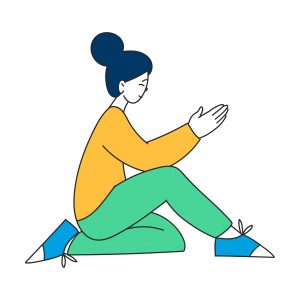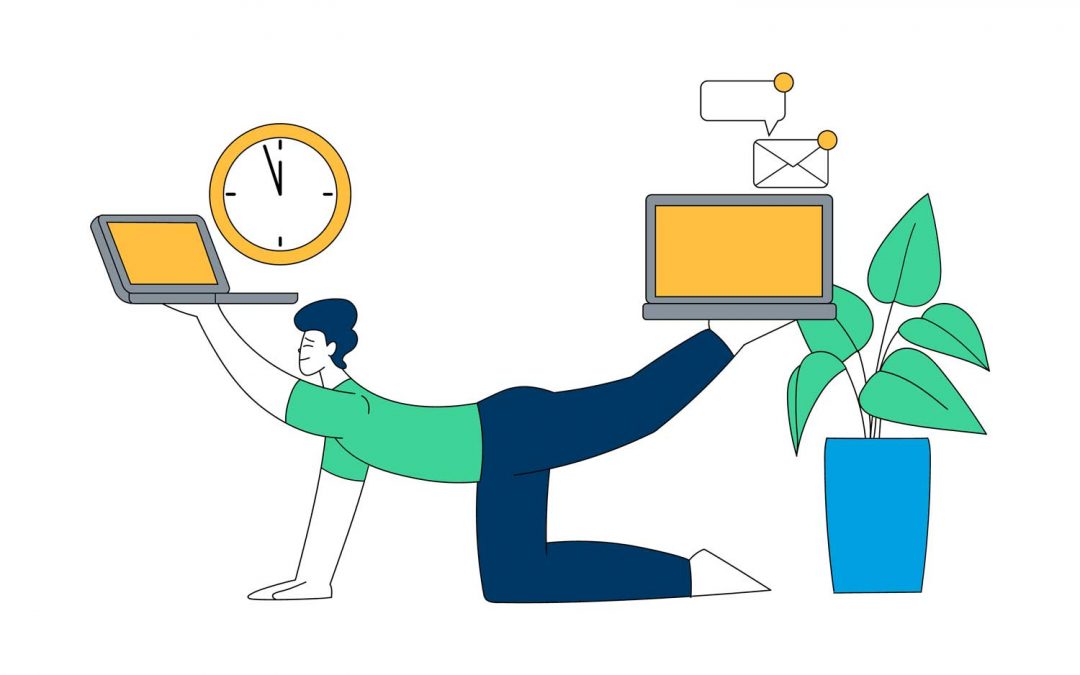In today’s busy world, it’s easy to feel overwhelmed by the fast pace of work and study. Deadlines, high expectations, and constant demands can leave us feeling stressed and anxious, but it can be helpful to remember there are simple, effective ways to manage these feelings. In this post, we’ll explore how stress and anxiety show up, along with some practical, gentle strategies to help you find balance and ease, whether you’re at work or studying.
Understanding stress and anxiety
Stress and anxiety are natural reactions to life’s pressures, but knowing how they show up can help you manage them better.
Common signs of stress:
- Physical: Tense muscles, headaches, fatigue, difficulty sleeping, and digestive problems.
- Emotional: Irritability, mood swings, trouble concentrating, restlessness.
Common signs of anxiety:
- Excessive worry: Worrying over everyday tasks or situations.
- Restlessness: Feeling constantly on edge or unable to relax.
- Panic attacks: Intense moments of fear with symptoms like a racing heart.
- Social anxiety: Discomfort in social situations.
Strategies to reduce stress and anxiety
You don’t have to feel stuck—here are some ways to bring more calm and balance into your life.
Everyday strategies:
- Mindfulness and Meditation: These practices help you stay present, slow down racing thoughts, and find a sense of peace.
- Physical Activity: Moving your body, even for a short time, releases endorphins that boost your mood.
- Healthy Eating: A balanced diet supports your body and mind. Avoid too much caffeine or sugar, which can heighten stress.
- Sleep: Create a cozy, restful environment and keep a steady sleep routine to help your body recharge.


For the workplace
- Time Management: Tools like calendars or to-do lists can help you stay organized and reduce overwhelm.
- Communication: Honest conversations with colleagues or supervisors can lighten your mental load.
- Take Breaks: Small pauses during the day can refresh your mind and energy.
- Boundaries: Setting clear lines between work and personal time protects you from burnout.
For students
- Study Techniques: Using time-blocking and active learning strategies can help make studying feel more manageable.
- Ask for Support: Don’t be afraid to reach out to teachers, tutors, or counselors when you need help.
- Self-Care: Balance study demands with routines that keep you grounded, like exercise, relaxation, or hobbies.
- Time Management: Break up your study sessions with short breaks to avoid feeling overwhelmed.

How Aim Forward can help
Managing stress and anxiety is key to protecting both your mental and physical well-being. By noticing the signs and using these simple strategies, you can regain control, improve your overall health, and feel empowered in your work or studies. At Aim Forward, we also offer needs assessments to help you better understand how you work and learn, and how to create strategies tailored just for you. Read more about needs assessments here.

